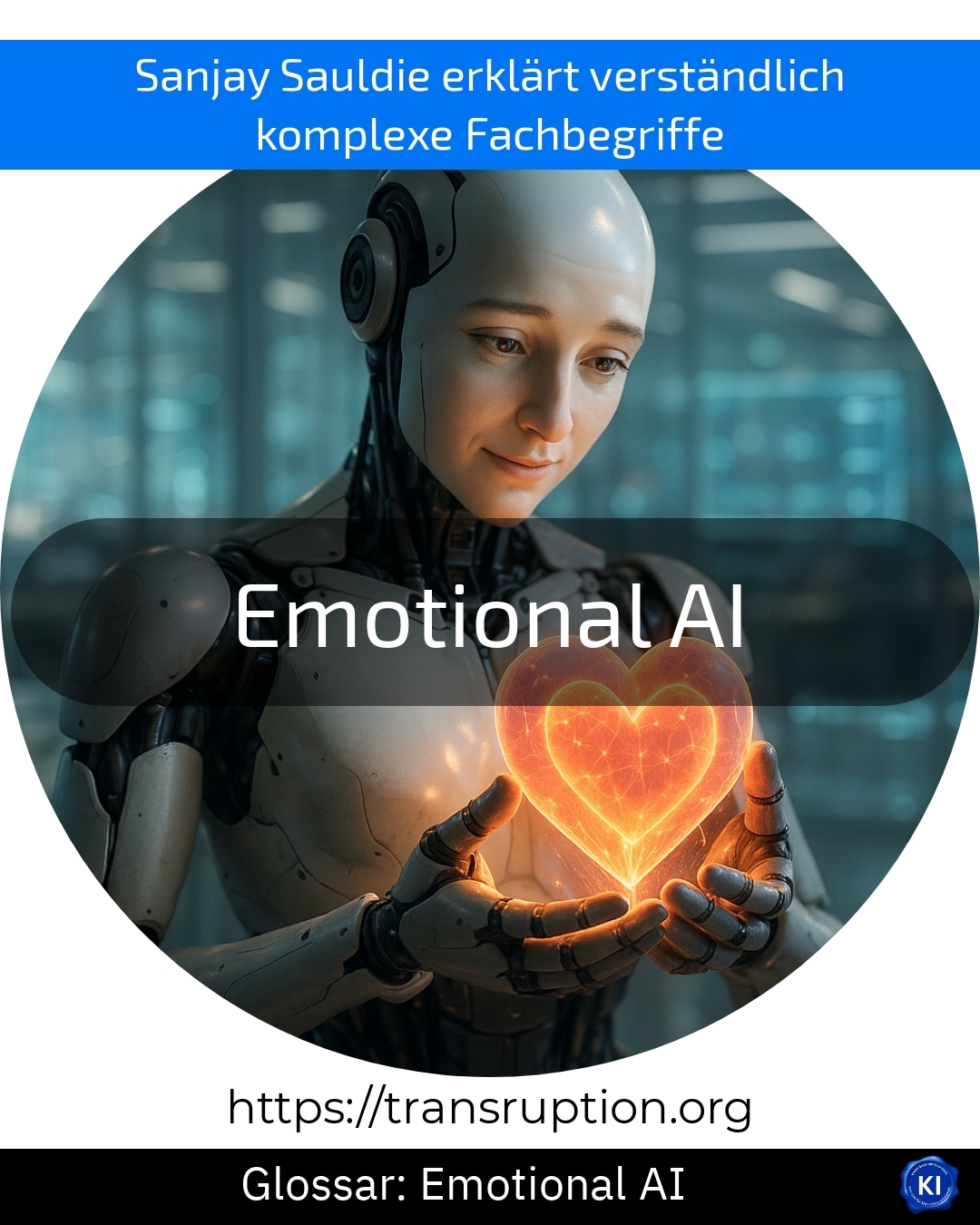Emotional AI is mainly at home in the fields of artificial intelligence, digital transformation and HR work and teams. The term describes technologies that not only process data, but can also recognise, interpret and react to human emotions. Emotional AI analyses voice, facial expressions or texts, for example, to detect moods such as happiness, anger or uncertainty.
This is how Emotional AI can be used in service hotlines. Imagine a customer calls an insurance company with a problem. The software recognises whether they are stressed or angry based on their voice and automatically adapts the answers. This can help to increase customer satisfaction because the caller feels understood.
Emotional AI is also used in personnel selection. During a video interview, an AI checks how confident or insecure someone appears in order to gain a more complete picture of their personality.
Emotional AI opens up many opportunities for companies to make communication with people more empathetic and efficient. It helps to make better decisions by incorporating emotional signals, which often determine success or failure.















